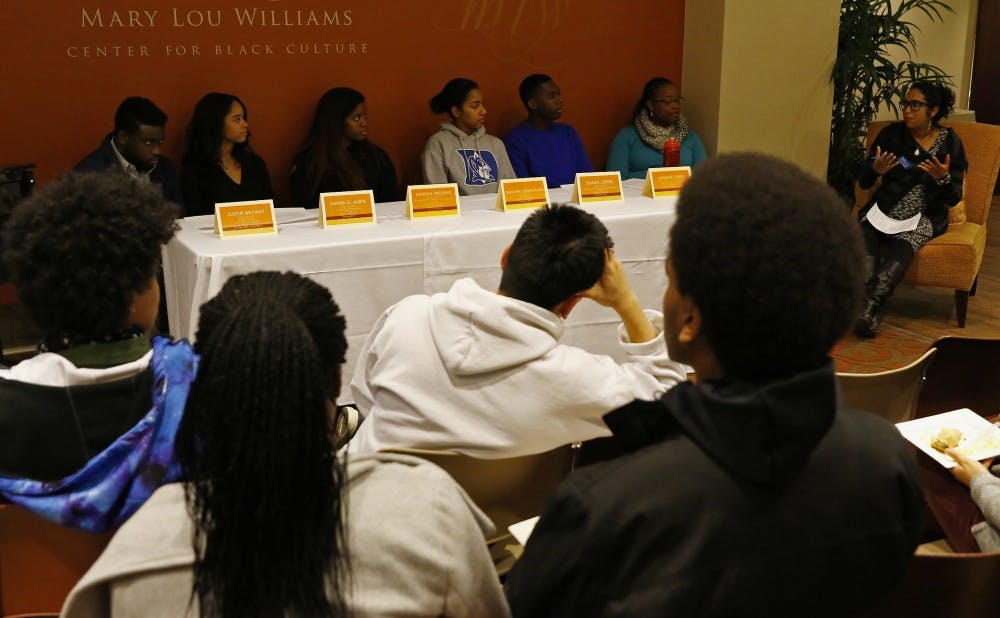A panel of students addressed what it means to be black while studying abroad Tuesday evening.
The event titled “The Black Experience Abroad–Duke Student Truths” drew about 40 people and was sponsored by the Mary Lou Williams Center for Black Culture and the Duke Global Education Office. Students shared their insights about how being black in America differs from being black abroad, noting that their black identities were often perceived less prominently than their American identities.
“Sometimes I see myself as a black woman, but I feel like in Northern Ireland I saw myself as a woman that was black,” said senior Chioma Iwelumo, who participated in DukeEngage Northern Ireland. “It was very nationality based.”
Other panelists included junior Justin Bryant, senior Amari El-Amin, senior Marleen Jones-Pool, junior Shaun Jones and Janaka Lewis, Trinity ’03 and assistant professor of English at the University of North Carolina at Charlotte. They explained that being abroad was a fun experience overall but still had its challenges.
Some students said that being black abroad made them stand out in racially homogeneous societies.
“It was so clear that I was black. It was not like a racial tension, but there were a lot of stares,” Bryant, who studied and interned in China, said. “Maybe somebody else would have thought differently about it, but it just seemed like a very friendly society that was very curious.”
Other panelists heard criticisms of the United States during their time abroad.
“On the one hand, I am proud to represent America, but it was nice to see a perspective from outside the U.S. that was looking at us like, ‘What is going on over there?’ That affirmed that there are issues here,” said El-Amin, who studied abroad in Istanbul.
Soraya Campbell, who works in the Duke Global Education Office and moderated the discussion, emphasized the importance of black students going abroad while at Duke, noting most students who go abroad are white women.
“We try to encourage students who are of color, especially black students, to go abroad. A lot of countries don’t get that experience of ‘Hey, there are black Americans in the U.S.,’” she said. “You’re doing a bit of diplomacy going abroad as a black student.”
Several students noted that issues related to race came from the white Duke students they went with rather than the people in the countries they visited.
“I never felt ostracized or anything on the grounds of race,” Iwelumo said, noting that she was the only black person in her group. “It was actually more within my DukeEngage group that I felt racial tension than I did with the population. My group dynamics almost ruined my experience for me.”
She also said that her group seemed to want to maintain a social hierarchy as if they were still on Duke’s campus.
Others noted that they sometimes struggled with loneliness as black students, especially when news of racist incidents in America reached them abroad. Bryant said the experience presented an opportunity for introspection and learning.
“Growth is fostered through discomfort, so don’t be afraid to be uncomfortable,” Bryant noted. “If your friends are scared they’ll be uncomfortable going abroad, good. Do it. That’s what it’s for.”
Correction: This story was updated to correct the spelling of Iwelumo's name in her first quote. The Chronicle regrets the error.
Get The Chronicle straight to your inbox
Signup for our weekly newsletter. Cancel at any time.
Adam Beyer is a senior public policy major and is The Chronicle's Digital Strategy Team director.

